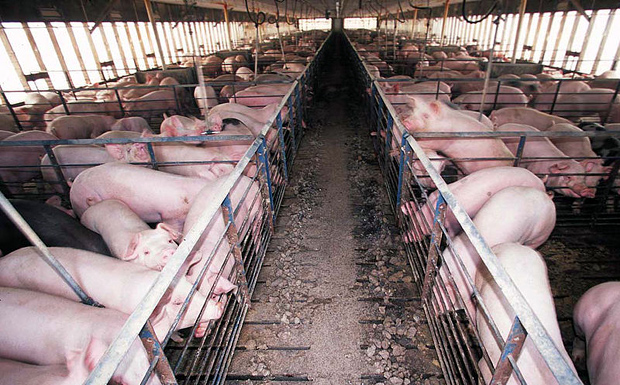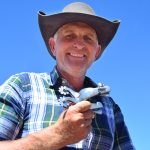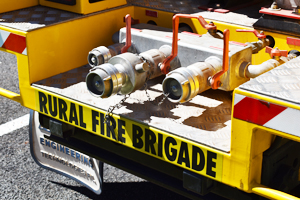
October 24, 2022
Researchers are concerned about the potential for a major outbreak of Japanese encephalitis virus (JEV) in Australia this summer, particularly among people living within four kilometres of piggeries.
The QIMR Berghofer Medical Research Institute collaborated with the University of Queensland, Queensland University of Technology and the London School of Hygiene and Tropical Medicine in the study.
Modelling concluded that as many as 750,000 Australians could be at risk of exposure to the virus which, until only last year, was confined to Asia and far northern Australia.
JEV is found in wild birds, and is spread between these hosts and other animals including pigs, humans and horses, by mosquitoes.
The virus dramatically expanded its range in Australia this year with confirmed cases in dozens of piggeries throughout southern Australia.
There have been 31 confirmed human cases and six deaths so far in 2022, and the researchers fear JEV may now be endemic.
The extended La Niña event could be responsible for the virus expansion because it created new wetlands which attracted infected water birds and provided breeding grounds for the common vector mosquito, Culex annulirostris.
Feral pigs may also play a role in transmission and during 2022 these have tested positive for JEV in the Northern Territory and Queensland.
The February 2022 outbreak was first detected in domestic piggeries across several states.
The paper, published in the journal Clinical Infectious Diseases, warns that if piggeries become a focus for infection, anyone living within four kilometres of an infected piggery was potentially at risk because the mosquito that spreads JEV is a strong flier.
The modelling, based on piggery distributions, concluded that up to 3 per cent of the population, or 740,546 people, could be at risk.
Senior author Associate Professor Greg Devine said people living close to populations of wading birds may also be at risk.
“We are extremely concerned about further outbreaks of Japanese encephalitis in Australia because of this third consecutive La Niña year. The wet and warm weather creates the right environment for mosquitoes to proliferate and may encourage changes in the distributions of the wild birds that maintain the virus during Australia’s winter months,” Assoc Prof Devine said.
“Most Australians have not been exposed to the virus before so they have no immunity.
“We are urging people to take precautions. The best protection is vaccination, but currently that’s not available to everyone. The next best protective measure is to avoid being bitten by a mosquito.”
Co-author Professor Colleen Lau, from UQ, said measuring the spread of JEV was difficult as most people were asymptomatic.
“Only around 1 per cent of people who become infected will have any symptoms. However, among those who do develop symptoms the fatality rate is around 30 per cent, and of those who survive, around half will have some sort of long-term neurological damage,” she said.
“Symptoms range from a fever through to severe encephalitis (inflammation of the brain). There is no specific treatment for Japanese encephalitis, so we can only manage symptoms and provide supportive management. There are two highly effective and safe vaccines available in Australia but supplies are limited so health authorities are prioritising vaccination for high risk groups.”
The modelling added to recent blood surveys in five regional NSW towns conducted by NSW Health and the National Centre of Immunisation Research and Surveillance which found nearly 9 per cent of participants had been infected with JEV, suggesting the virus was very common in those areas.
Associate Professor Ricardo Soares Magalhães, from the UQ School of Veterinary Science, said JEV was devastating economically for the piggeries.
“The virus spreads rampantly through the herd causing abortions and still births. There is no licenced vaccine for pigs so we’re relying on biosecurity measures such as protecting herds from mosquitoes,” he said.
“In horses, JEV is largely asymptomatic but when symptoms do appear, there is a very high fatality rate, especially among foals, with around half of all symptomatic cases dying. It is very debilitating.
“So far we don’t have any confirmed cases in the equine industry in Australia which is really good news, but that doesn’t mean we won’t see cases in the next few months. Right now UQ in partnership with other institutions are accelerating the development of an equine vaccine against JEV.”
* * *
JEV safety tips:
- Check your eligibility for vaccination
- Protect yourself outside at dawn and dusk when mosquitoes are most active
- Apply mosquito repellents containing Picaridin or DEET to exposed skin
- Wear long, loose fitting clothes that cover arms and legs, and shoes that cover the feet
- Install insect screens on doors and windows
- Protect infants with mosquito-proof netting on prams
- Sprays and coils can be used in small outdoor areas
- Empty standing water that has collected around your home
* * *
Related articles:























